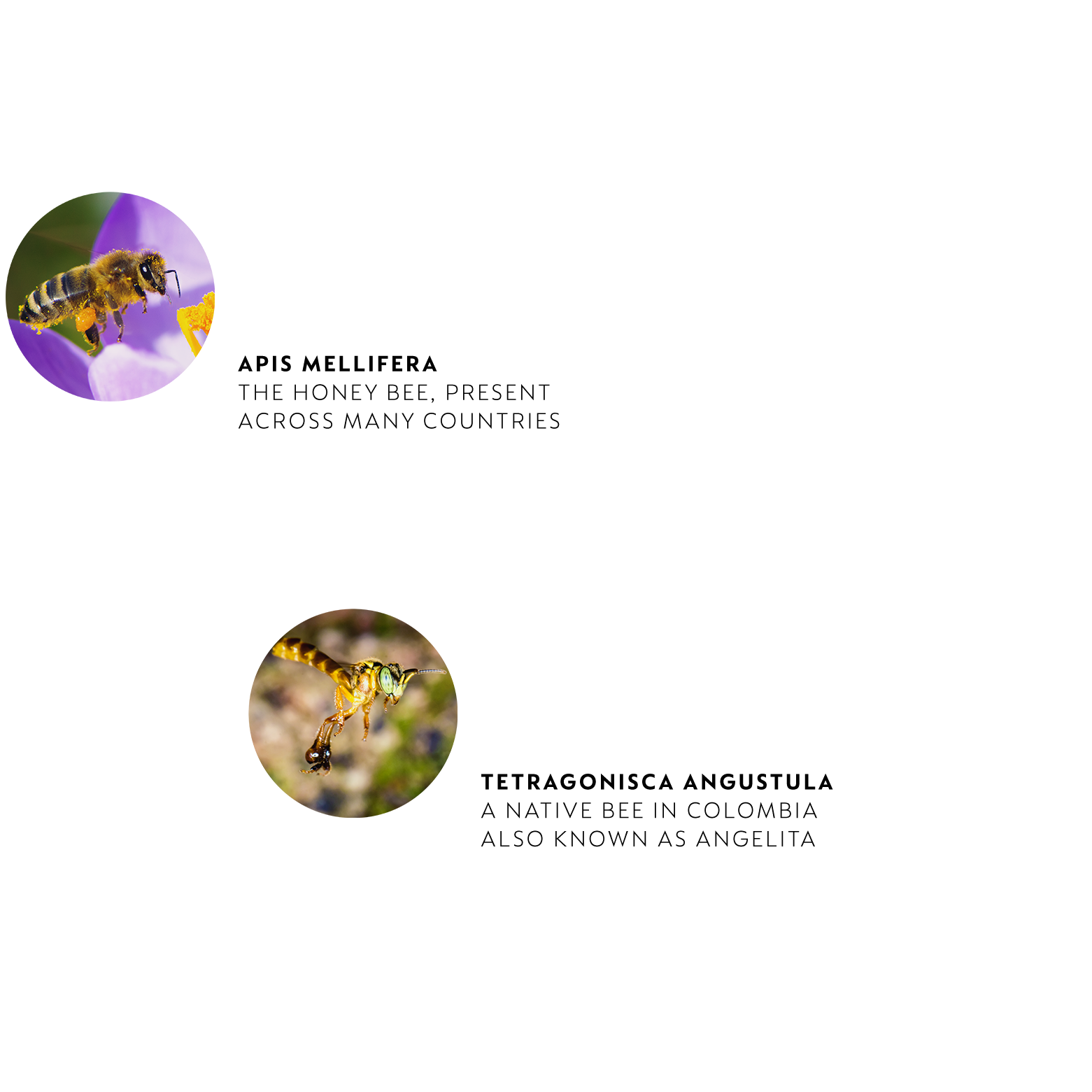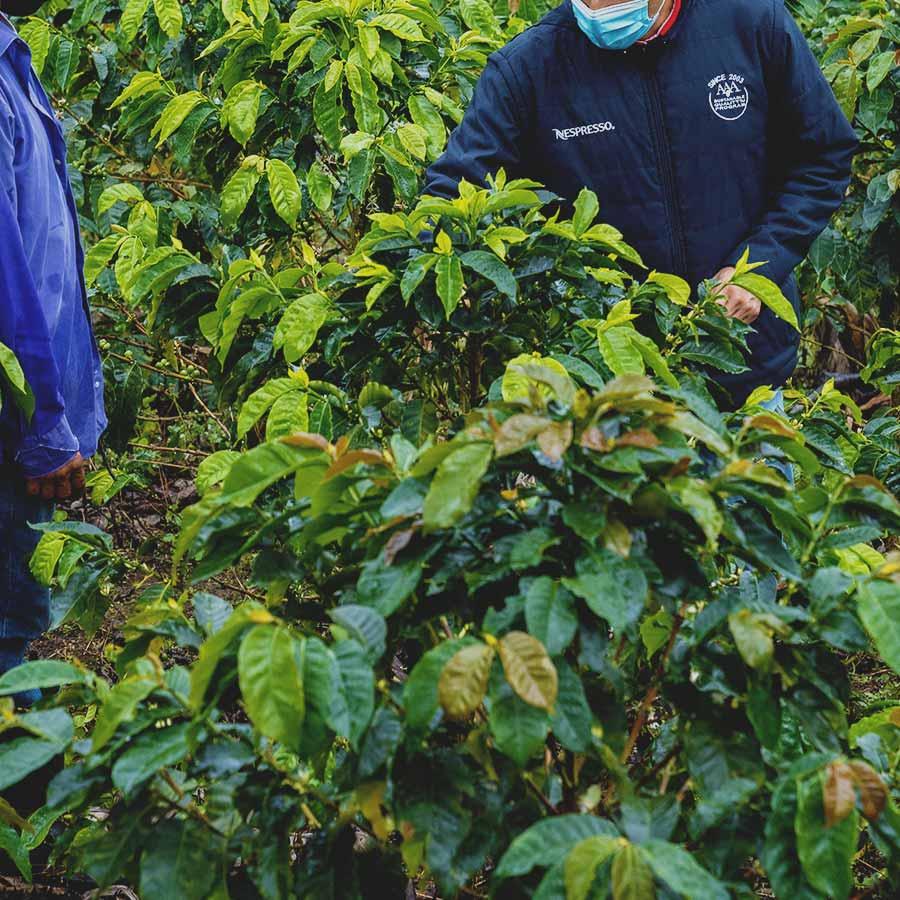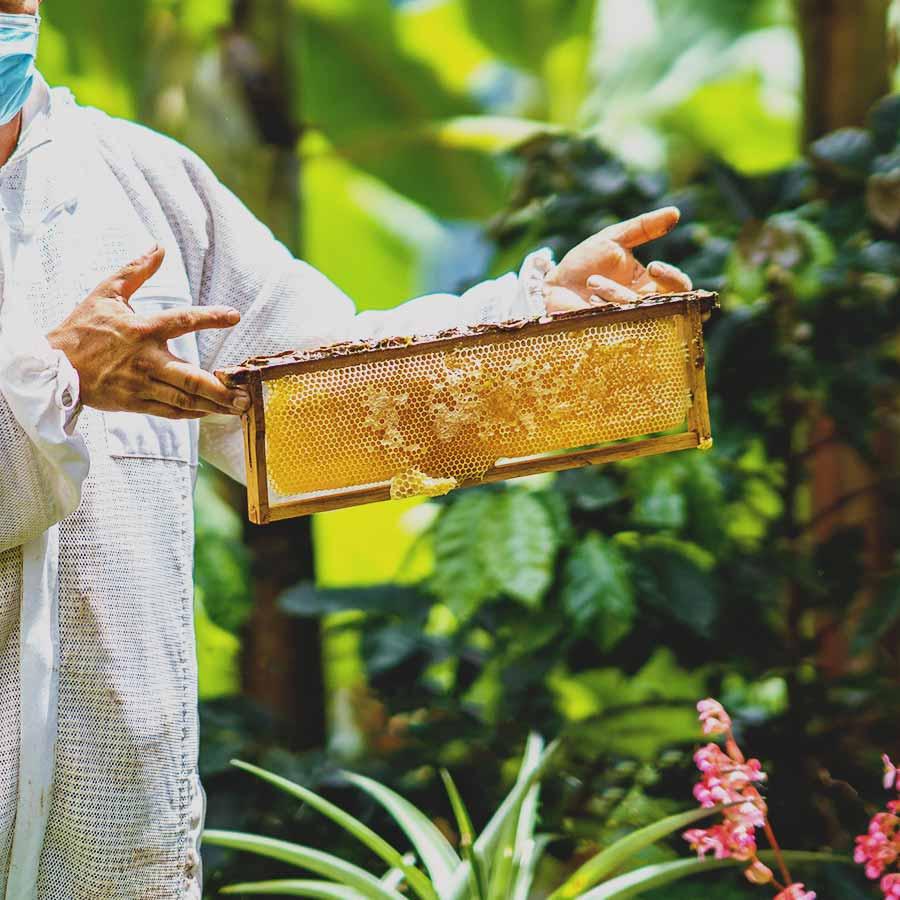Article published in: May 2021
Article updated in: February 2022
CAN BEES MEAN BETTER COFFEE?
In most coffee producing countries, smallholder farmers make use of beehives to produce honey for their households or to generate a secondary income. Yet bees have never been considered important to coffee farm management and economics. One reason is that arabica coffee plants are generally believed to be self-pollinating – not needing specific pollinators to produce high quality beans.
However recent studies – showing the impacts bees can have on coffee farm productivity – got us busy thinking.
Could bees boost coffee tree productivity and improve the quality of the coffee bean on AAA farms – on top of any benefits they already bring to farmers?
STATE-OF-THE-ART TECHNOLOGY
We teamed up with the startup Ubees, whose state-of-the art technology enables remote, real-time monitoring of the health of beehives, the pollination status of the field and the local weather information.
By placing beehives nearby during the coffee blooming weeks and installing them to be integrated into farming practices in Colombia, we began looking at what could happen.
IT ALL STARTS WITH HEALTHY ECOSYSTEMS
The relationship between bees and farmers is not one-way.
Bees can only settle and deliver their services in an ecosystem that is suitable for their development. The adoption of conservation practices by AAA farmers, most specifically regarding pest and weed management, and the presence of tree diversity, particularly those with flowers, are critical components for the successful balance of this relationship.
Bees start to work during blooming.
As they visit the flowers of nearby trees to collect the nectar, they also collect pollen. And recent studies suggest that the transfer of pollen from one coffee flower to another can increase the pollination success and therefore the amount of fruit development. Plus, these visits improve the synchrony of fruit ripening, which improves the quality of the final harvest.
Beyond the direct benefits to coffee production, bees also transport a number of micro-organisms around the farm, and contribute to the good functioning of the ecosystem in which a range of species co-exist, competing and also benefitting from one another.

COLLEAGUES FOR AAA COFFEE FARMERS
Apis Mellifera, Tetragonisca Angustula, Meliponini Scaptotrigona – the new colleagues of AAA coffee farmers.
Using native bees in these projects was important for checking pollination efficiencies as well as offering high value by-product from the hives, particularly from the Angelita bees who produce a “honey” with medical benefits.
HEALTHY ECOSYSTEMS MAKE ECONOMIC SENSE
Thanks to the Ubees’ technology we have been able to follow the entire project in real-time. And our first insights have been more than encouraging.
In Colombia, where the beehives will remain on farms as farmers become beekeepers, the production of honey and by-product is estimated to have generated more than USD 950 additional income per farm in 2020, with results soon to be finalised. Samples of pollen in the beehives here will also give us further insights into the local status of contaminants.
Read more about these projects in Colombia.


BEES AND BEANS IN BALANCE
So, in return for a little sip of nectar, the coffee farmer gets more from the bees than the pollination of the coffee flowers.
This is at the core of our vision for regenerative agriculture. Leveraging solutions that nature provides to coffee farming while ensuring that coffee farming provides the right context for nature to thrive.
ALBERT EINSTEIN (1879-1955)“IF BEES DISAPPEAR FROM THE FACE OF THE EARTH, HUMANITY WILL ONLY HAVE FOUR MORE YEARS OF EXISTENCE. WITHOUT BEES THERE IS NO POLLINATION, NO REPRODUCTION OF FLORA, NO FLORA NO ANIMALS, NO ANIMALS, NO HUMAN RACE.”

